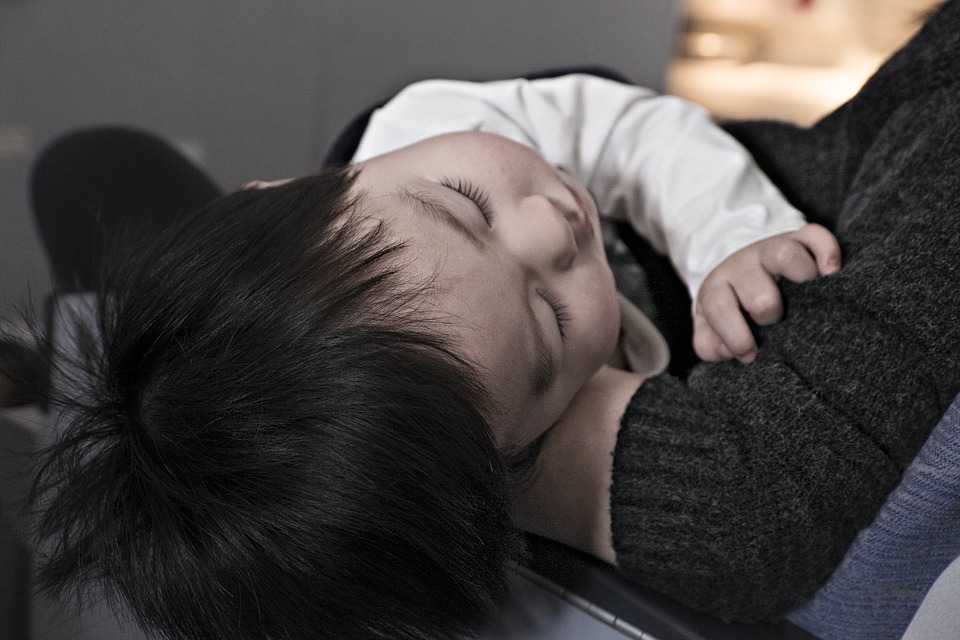


(Photo/pixabay.com)
62.9 percent of Chinese children and adolescents aged between 6 and 17 sleep less than 8 hours per day, said a recent report issued by the Chinese Sleep Research Society.
The report, based on the most extensive survey on the sleep quality of Chinese youths to date, said academic pressure was the primary factor affecting the group’s sleep quality.
The survey covered nearly 70,000 respondents, including children between 6 and 17 years old and their parents from 31 Chinese provinces, municipalities and autonomous regions.
The report noted that the sleep quality of Chinese children and adolescents only just met the minimum requirement.
Children aged between 6 and 12 should sleep between 9 and 10 hours every day, and adolescents aged between 13 and 17 should sleep 8 to 9 hours. However, 81.2 percent of adolescents reported getting less than the standard, and 32.2 percent of children also failed to meet the standard.
According to the report, 8.64 percent of students are still busy with homework at 11:00 pm from Monday to Thursday.
Academic pressure is the main factor affecting the sleep quality of Chinese youths, followed by the use of electronics such as TV, smartphones and computers. Additionally, extra-curriculum courses, as well as irregular daily routines also contributed to the lack of sleep.
“Children who sleep more always perform better in their studies, while those who lack sleep are prone to feeling down with bad tempers, and can suffer from attention deficit and poor memory,” said Gao Xuemei, deputy head of the Chinese Sleep Research Society.
Sleep plays an essential role in physical and intellectual development. It has also been linked directly to health, personality and obesity issues among young people.
The survey indicated that 45.9 percent of children not hitting the recommended hours of sleep reported weakened immunity, causing them to get sick more often. The percentage of those with a high quality of sleep stood at only 16.7 percent.
Additionally, 36.5 percent of those who fail to meet the recommended hours of sleep also suffer from obesity, while only 3.7 percent of those who sleep well are overweight.
 Fire brigade in Shanghai holds group wedding
Fire brigade in Shanghai holds group wedding Tourists enjoy ice sculptures in Datan Town, north China
Tourists enjoy ice sculptures in Datan Town, north China Sunset scenery of Dayan Pagoda in Xi'an
Sunset scenery of Dayan Pagoda in Xi'an Tourists have fun at scenic spot in Nanlong Town, NW China
Tourists have fun at scenic spot in Nanlong Town, NW China Harbin attracts tourists by making best use of ice in winter
Harbin attracts tourists by making best use of ice in winter In pics: FIS Alpine Ski Women's World Cup Slalom
In pics: FIS Alpine Ski Women's World Cup Slalom Black-necked cranes rest at reservoir in Lhunzhub County, Lhasa
Black-necked cranes rest at reservoir in Lhunzhub County, Lhasa China's FAST telescope will be available to foreign scientists in April
China's FAST telescope will be available to foreign scientists in April "She power" plays indispensable role in poverty alleviation
"She power" plays indispensable role in poverty alleviation Top 10 world news events of People's Daily in 2020
Top 10 world news events of People's Daily in 2020 Top 10 China news events of People's Daily in 2020
Top 10 China news events of People's Daily in 2020 Top 10 media buzzwords of 2020
Top 10 media buzzwords of 2020 Year-ender:10 major tourism stories of 2020
Year-ender:10 major tourism stories of 2020 No interference in Venezuelan issues
No interference in Venezuelan issues
 Biz prepares for trade spat
Biz prepares for trade spat
 Broadcasting Continent
Broadcasting Continent Australia wins Chinese CEOs as US loses
Australia wins Chinese CEOs as US loses